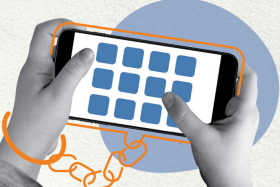Mental health myths: Is it possible to get better? Is help expensive?
It is prohibitively expensive to seek mental health help in Singapore – or is it? Ms See Yen Theng, chief of caregiving and community mental health division at the Agency for Integrated Care, sets the record straight on common misconceptions about mental health in Singapore.
Myth #1
The Institute of Mental Health is the only place to seek help for all mental health issues
The Institute of Mental Health is the only tertiary hospital in Singapore that specialises in psychiatry, which is the diagnosis and treatment of mental health conditions. However, other restructured hospitals also have psychiatric services that offer diagnosis and treatment.
What’s more, hospitals are not the only places where you can seek mental health help. Those who recognise the signs and symptoms of mental health issues in themselves or their loved one can also go to their general practitioner, or regular polyclinic for a diagnosis and treatment.
Other mental health first-stop touchpoints, such as Community Outreach Teams, can be found at social service agencies. These teams can understand a person’s needs, promote early recognition and provide emotional support to individuals and caregivers.
Social service agencies also have a Community Intervention Team, which provides assessment, counselling, therapy, case management and psychoeducation support for clients with mental health issues and dementia, and their caregivers. With the assessment, the team develops individualised care plans for clients or link them up with other suitable services.
To locate and contact these teams, individuals can use the Community Mental Health Wayfinding Tool, co-developed by the Agency for Integrated Care and MOH Office for Healthcare Transformation.
The tool is designed to help users locate community mental health services within three clicks, based on their needs, age and postal address. Such needs could be to find out what kind of help is appropriate, locate the nearest service providers for therapy, counselling or medical advice, or be directed to self-help resources.
Since the tool’s launch in May, more than 8,000 users have accessed it. The tool can be found at https://mindline.sg/mental-health-service-providers/start
Myth #2
People with mental health conditions will never get better
Studies show that most people with mental health conditions can get better, with some making a full recovery. Mental health recovery is the process by which people can go back to living, working, learning, and reintegrating back into their communities.
Recovery is a unique process and varies from person to person. For some individuals, recovery is the ability to live a fulfilling and meaningful life while living with mental health issues. For others, recovery can mean symptoms improve or go away altogether.
Myth #3
Feelings of depression are not a mental health issue
While there will be times in life that can have you feeling anxious or down, persistent or prolonged feelings of sadness, hopelessness, or loss of interest in activities may be signs of clinical depression or other mental health disorders.
Myth #4
It is too expensive to seek help for my mental health condition
Individuals may be worried about the cost of mental health treatment, but services provided by social service agencies are mostly offered at no cost. Some selected agencies may charge a nominal commitment fee.
For medical services such as seeing a general practitioner or polyclinic doctor, financial subsidies to offset the cost are available to eligible patients.
Mental health conditions such as schizophrenia, depression, bipolar disorder and anxiety are covered to a certain degree by MediSave under the Chronic Disease Management Programme. You can use your MediSave to pay up to $500 of your outpatient treatment cost per year. Your co-pay will be 15 per cent of your bill.
Myth #5
My mental health records will be shared with other parties
Your visits to the doctor or a social service agency will be kept confidential. Health records cannot be shared without permission. The only exception to this rule is when it is ordered by a court of law, or if there is a need to prevent harm to yourself or to others.
Get The New Paper on your phone with the free TNP app. Download from the Apple App Store or Google Play Store now


